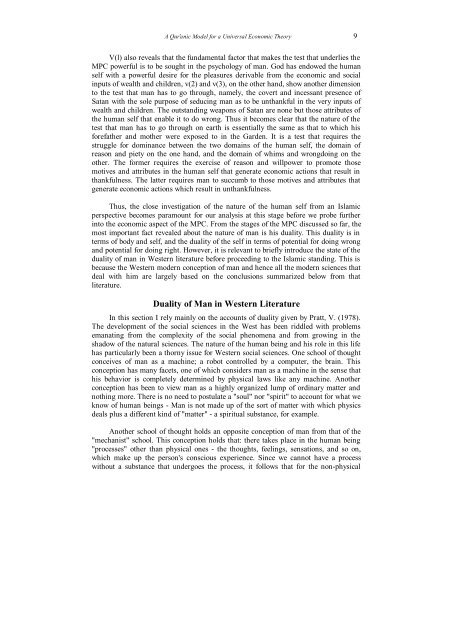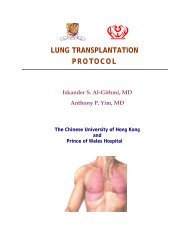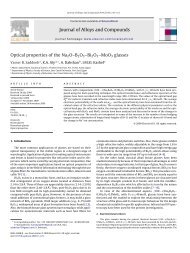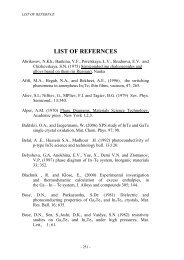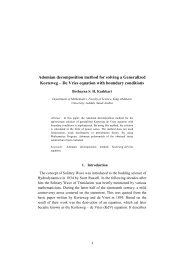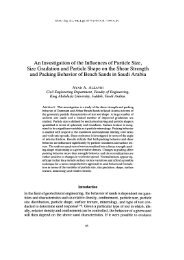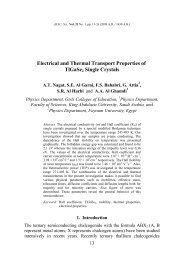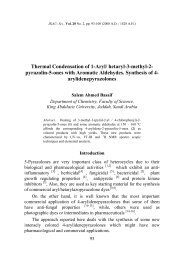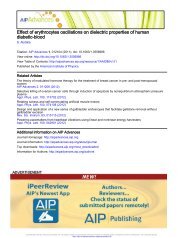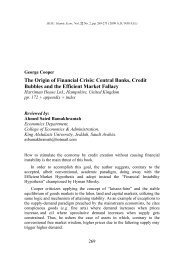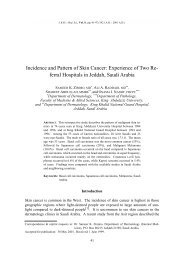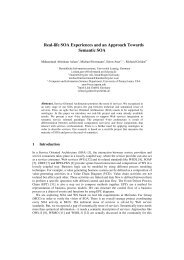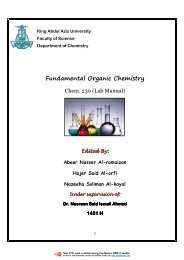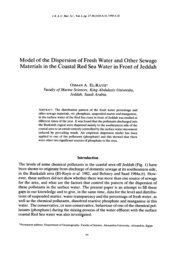A Qur'anic Model for a Universal Economic Theory
A Qur'anic Model for a Universal Economic Theory
A Qur'anic Model for a Universal Economic Theory
You also want an ePaper? Increase the reach of your titles
YUMPU automatically turns print PDFs into web optimized ePapers that Google loves.
A Qur’anic <strong>Model</strong> <strong>for</strong> a <strong>Universal</strong> <strong>Economic</strong> <strong>Theory</strong> 9<br />
V(l) also reveals that the fundamental factor that makes the test that underlies the<br />
MPC powerful is to be sought in the psychology of man. God has endowed the human<br />
self with a powerful desire <strong>for</strong> the pleasures derivable from the economic and social<br />
inputs of wealth and children, v(2) and v(3), on the other hand, show another dimension<br />
to the test that man has to go through, namely, the covert and incessant presence of<br />
Satan with the sole purpose of seducing man as to be unthankful in the very inputs of<br />
wealth and children. The outstanding weapons of Satan are none but those attributes of<br />
the human self that enable it to do wrong. Thus it becomes clear that the nature of the<br />
test that man has to go through on earth is essentially the same as that to which his<br />
<strong>for</strong>efather and mother were exposed to in the Garden. It is a test that requires the<br />
struggle <strong>for</strong> dominance between the two domains of the human self, the domain of<br />
reason and piety on the one hand, and the domain of whims and wrongdoing on the<br />
other. The <strong>for</strong>mer requires the exercise of reason and willpower to promote those<br />
motives and attributes in the human self that generate economic actions that result in<br />
thankfulness. The latter requires man to succumb to those motives and attributes that<br />
generate economic actions which result in unthankfulness.<br />
Thus, the close investigation of the nature of the human self from an Islamic<br />
perspective becomes paramount <strong>for</strong> our analysis at this stage be<strong>for</strong>e we probe further<br />
into the economic aspect of the MPC. From the stages of the MPC discussed so far, the<br />
most important fact revealed about the nature of man is his duality. This duality is in<br />
terms of body and self, and the duality of the self in terms of potential <strong>for</strong> doing wrong<br />
and potential <strong>for</strong> doing right. However, it is relevant to briefly introduce the state of the<br />
duality of man in Western literature be<strong>for</strong>e proceeding to the Islamic standing. This is<br />
because the Western modern conception of man and hence all the modern sciences that<br />
deal with him are largely based on the conclusions summarized below from that<br />
literature.<br />
Duality of Man in Western Literature<br />
In this section I rely mainly on the accounts of duality given by Pratt, V. (1978).<br />
The development of the social sciences in the West has been riddled with problems<br />
emanating from the complexity of the social phenomena and from growing in the<br />
shadow of the natural sciences. The nature of the human being and his role in this life<br />
has particularly been a thorny issue <strong>for</strong> Western social sciences. One school of thought<br />
conceives of man as a machine; a robot controlled by a computer, the brain. This<br />
conception has many facets, one of which considers man as a machine in the sense that<br />
his behavior is completely determined by physical laws like any machine. Another<br />
conception has been to view man as a highly organized lump of ordinary matter and<br />
nothing more. There is no need to postulate a "soul" nor "spirit" to account <strong>for</strong> what we<br />
know of human beings - Man is not made up of the sort of matter with which physics<br />
deals plus a different kind of "matter" - a spiritual substance, <strong>for</strong> example.<br />
Another school of thought holds an opposite conception of man from that of the<br />
"mechanist" school. This conception holds that: there takes place in the human being<br />
"processes" other than physical ones - the thoughts, feelings, sensations, and so on,<br />
which make up the person's conscious experience. Since we cannot have a process<br />
without a substance that undergoes the process, it follows that <strong>for</strong> the non-physical


